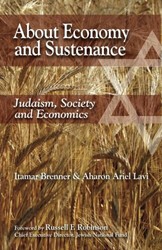Journalist Eyal Press’s compelling work explores the nature of moral courage and the capacity to transcend conventional moral standards. The book begins with references to the psychological factors involved in the process of resisting evil authority. These passages are limited in scope given the vast literature on the development of altruistic behavior and empathy.
The author’s bias toward a social psychological view of evil results in an overemphasis upon situational ethics as opposed to a more nuanced developmental model to explain the dynamics of becoming a rescuer or a resister. Readers sympathetic toward the view that ordinary people can become monsters under the right environmental conditions will find themselves comfortable with Press’s narrative. On the other hand, those who see the Eichmanns of the world and the people who support them as individuals who obtain sadistic gratification from their murderous activities will be deeply troubled by the conceptual framework of this book. This becomes evident early on when Press minimizes Daniel Goldhagen’s position that much of the genocide of the Holocaust was voluntary in nature (“willing executioners”) and that the killing was undertaken with “exuberant joy.”
This book’s value and the ease with which it can be recommended comes from the author’s ability to bring to light the ideals and beliefs of an array of individuals who exhibited unparalleled moral courage and ethical maturity at great risk to their lives. Gentile rescuers of Jews during the Holocaust, a Serb saving Croats during the Bosnian war, Israeli soldiers refusing to serve in the West Bank, a financial industry whistleblower are each eloquently portrayed.
Beautiful Souls, despite the above reservations, is a valuable addition to any college library and can serve as an excellent starting point for in-depth classroom discussions of moral dilemmas and the nature of ethical decision-making under extreme stress. Acknowledgments, notes.





